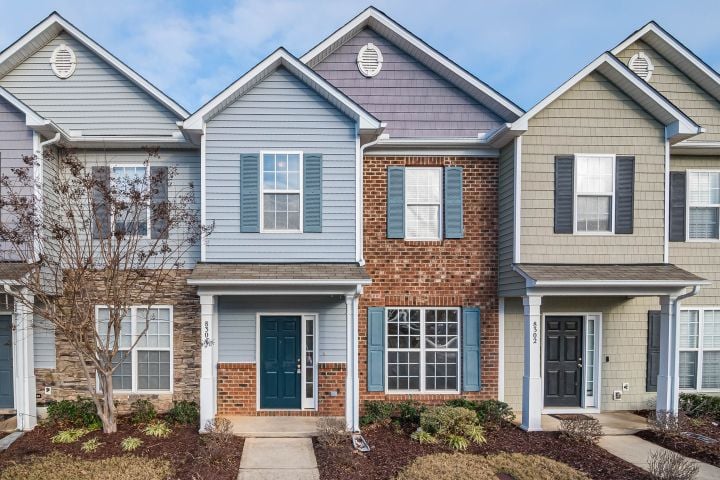Deciding whether to rent or buy a home in Australia can be a daunting task, as both options come with their own unique advantages and drawbacks. The best choice for you will ultimately depend on factors such as your financial situation, job stability, long-term goals, and current property market trends.
In this article, we’ll delve into the pros and cons of both renting and homeownership, so you can make a well-informed decision that suits your individual needs and circumstances. To help you navigate through this important decision, we’ll be examining key financial aspects, such as maintenance costs, tax implications, and investment potential, that can significantly impact your overall experience with either renting or buying.
Additionally, we’ll explore the influence of job opportunities and stability on your decision, as well as the importance of understanding the current property market trends in Australia. Armed with this knowledge, you’ll be better equipped to make a sound decision that aligns with your long-term goals and preferences.
Assessing the Advantages of Renting
When weighing up your options, it’s important to consider the various perks that come with leasing a property, as they may greatly impact your decision. Renting offers flexibility and a reduced financial burden compared to buying a home.
As a renter, you can easily relocate without the hassle of selling a property, making it an ideal choice for those with an unpredictable lifestyle or for those who may need to move frequently for work. Additionally, renting typically requires a lower initial investment, as there are no hefty down payments, mortgage insurance, or property taxes to contend with.
Another advantage of renting is the ability to avoid the costs and responsibilities associated with home maintenance and repairs. As a tenant, you are not liable for the cost of fixing a leaky roof, replacing appliances, or general upkeep of the property. This frees up your finances and time, allowing you to focus on other aspects of your life.
Furthermore, renting can provide an opportunity to live in a desirable location or at a higher standard of accommodation than you might be able to afford if you were to buy a home. While renting certainly has its merits, it’s important to acknowledge that it may not be the best long-term investment, as you are not building equity in a property. However, by saving on upfront costs and maintenance expenses, you could potentially invest that money elsewhere, such as in shares or other financial assets.
As you consider your housing options, keep in mind that there is no one-size-fits-all answer, and your individual circumstances will ultimately determine what is best for your move. Now that you have a clearer understanding of renting’s advantages, it’s time to explore the benefits of homeownership and how they may shape your decision.
Exploring the Benefits of Homeownership
In this digital age of social media and instant gratification, it’s important to take a step back and consider the long-term benefits homeownership can offer you and your family.
Owning a home in Australia provides a sense of stability, financial security, and the opportunity to build wealth over time. While renting might be more flexible and less of a commitment, homeownership offers a number of significant benefits that can enhance your overall quality of life.
Some key benefits of homeownership include:
- Asset Appreciation: Over time, property values tend to increase. As a homeowner, you can benefit from this appreciation and build equity in your property. This can be a significant source of wealth and financial security for your future.
- Tax Benefits: Australian homeowners are eligible for tax benefits such as deductions for mortgage interest, property taxes, and other home-related expenses. These benefits can help offset the costs of homeownership and make it more affordable in the long run.
- Control and customization: As a homeowner, you have the freedom to make changes and improvements to your home without needing permission from a landlord. This allows you to create a living space that better suits your needs and preferences.
However, before you dive headfirst into the world of homeownership, it’s crucial to carefully examine your current financial situation and long-term goals. Owning a home can be a significant investment, and it’s essential to ensure that you’re prepared for the various costs and responsibilities associated with it.
In the next section, we’ll discuss key financial factors to consider when deciding between renting and buying a home in Australia.
Key Financial Factors to Consider
It’s essential to carefully weigh the financial aspects of homeownership before making a decision, as this can greatly impact your overall financial stability and future goals. To do this, you need to consider several key factors, such as the cost of the property, your current financial situation, and the potential for long-term appreciation. By analyzing these elements, you can make an informed decision about whether buying a home is the right move for you.
One of the first financial factors to consider is the cost of the property itself. This includes not only the purchase price but also the ongoing costs associated with homeownership, such as property taxes, maintenance, and insurance. Additionally, you should factor in upfront expenses like stamp duty, legal fees, and loan application fees.
Compare these costs to the cost of renting a home, keeping in mind that renters typically don’t have to worry about property taxes, maintenance, or insurance. On the other hand, owning a home can provide you with tax benefits, such as the ability to deduct mortgage interest and property tax payments from your taxable income.
Another crucial aspect to take into account is the potential for long-term appreciation of your property. This is especially important in Australia, where property prices have historically shown a consistent upward trend. However, it’s essential to remember that past performance is not a guarantee of future results, and market conditions can change.
To make a well-informed decision, you should stay updated on property market trends and consider how they might impact your investment. This will help you assess whether buying a home in Australia is the right move for you, taking into account your personal financial situation and long-term goals.
With a solid understanding of these key financial factors, you’re now better equipped to navigate the impact of property market trends on your decision-making process.
The Impact of Property Market Trends
Keeping an eye on property market trends can significantly influence your decision-making process, so let’s dive into how these trends can impact you. Understanding the current property market trends will help you navigate the decision about whether renting or buying a home in Australia is best for your move.
Just like any market, the property market experiences fluctuations driven by various factors, such as economic growth, housing supply, government policies, and population changes. Being aware of these trends can help you make a more informed decision and potentially save you money in the long run.
Here are a few key factors to keep in mind when considering property market trends:
- Housing prices: Keep an eye on the median house prices in the area you’re considering, as it will give you an idea of whether the market is currently in your favor for buying or renting.
- Housing supply: A high housing supply may lead to more competitive rental prices, whereas a low supply may lead to increased demand for purchasing properties.
- Interest rates: Low interest rates can make it more affordable to buy a home, while high interest rates may make renting a more financially sound option.
- Government policies: Changes in government policies, such as incentives for first-time homebuyers or changes in rental regulations, can significantly impact the property market and your decision-making process.
Knowing the property market trends is just one aspect of making the right choice for your move to Australia. It’s essential to also consider your personal circumstances, such as your job opportunities and stability, as they will play a crucial role in determining whether renting or buying a home is the best option for you. So, let’s move on and discuss the importance of evaluating job opportunities and stability in Australia.
Evaluating Job Opportunities and Stability
Picture yourself settling into a new life Down Under, and you’ll quickly realize that assessing job opportunities and stability plays a vital role in deciding whether to rent or buy a home. Before making a decision, it’s essential to evaluate the job market in the area you’re considering moving to and determine if there are ample opportunities for growth and long-term stability in your chosen field.
Research local industries, connect with professionals in your field, and consider the overall economic outlook in the region. This information will give you a better understanding of the potential for job stability and career growth, which can significantly influence your decision to rent or buy.
Another critical factor to consider is your job mobility and the likelihood of needing to relocate for work in the future. If your career requires frequent moves or international assignments, renting may be a more suitable option, as it allows for greater flexibility and less financial commitment. On the other hand, if you’re confident in your job stability and plan to stay in the area long-term, purchasing a home can be a wise investment and provide a sense of security.
Keep in mind that your lifestyle preferences and flexibility also play a significant role in choosing the best housing option for you. By weighing the pros and cons of renting and buying in relation to your job situation and future career plans, you can make an informed decision that aligns with both your professional and personal goals.
In the next section, we’ll delve deeper into the importance of considering lifestyle preferences and flexibility when deciding whether to rent or buy a home in Australia.
Lifestyle preferences and flexibility
When weighing the pros and cons of putting down roots or maintaining a sense of freedom, it’s crucial to let your lifestyle preferences and flexibility take center stage in your decision-making process.
Renting a home typically provides you with more flexibility, as lease agreements are often for a shorter period, allowing you to relocate with relative ease if your work or personal circumstances change. On the other hand, buying a home in Australia often means committing to a long-term mortgage, which can limit your mobility and make it more challenging to adapt to sudden changes in your life.
However, it’s essential to consider the benefits that come with owning a home, such as stability and the potential for property value appreciation. Homeownership can also offer a sense of pride and belonging, as you have the freedom to make your home your own and invest in it over time. This sense of stability can be especially important for families with children, as it may provide a more suitable environment for raising kids and building lasting connections within a community.
On the flip side, renting a home can afford you the opportunity to experience different neighborhoods and living arrangements without the commitment and financial burden of homeownership. This lifestyle may be more suitable for those who prioritize travel, career progression, or personal growth over settling down in a specific location.
As you assess your lifestyle preferences and flexibility needs, remember that your housing choice will significantly impact your overall quality of life. With this in mind, it’s essential to weigh the pros and cons of each option carefully before making a decision.
As you continue to evaluate renting versus buying a home in Australia, it’s also important to consider the maintenance responsibilities and costs involved in each option.
Maintenance Responsibilities and Costs
While lifestyle preferences and flexibility play a significant role in deciding whether to rent or buy a home in Australia, another critical factor to consider is the maintenance responsibilities and costs associated with homeownership.
As a renter, you’re usually not responsible for the upkeep of the property, with your landlord taking care of repairs and maintenance. On the other hand, as a homeowner, you’ll be responsible for all maintenance costs, which can be a significant financial burden if not planned for carefully.
When you own a home, you’re responsible for all repairs, from minor fixes to major renovations. This can include roof repairs, plumbing issues, electrical work, and even landscaping. These expenses can add up quickly, and you should be prepared to set aside a budget for routine maintenance and unexpected repairs.
On the flip side, as a renter, you won’t have to worry about these expenses, as your landlord is responsible for the property’s upkeep, allowing you to focus on your monthly rent and living expenses. However, this also means that your living environment may not be entirely under your control, as your landlord may not be as prompt or proactive in addressing maintenance issues as you’d like.
In addition to the financial aspect of maintenance costs, homeownership requires a commitment of time and effort to ensure your property remains in good condition. This may not suit everyone’s lifestyle, particularly if you prefer to spend your free time on leisure activities or traveling.
As you weigh your options, consider whether taking on the responsibility of home maintenance aligns with your lifestyle and financial goals. Now, let’s delve into tax implications and incentives, which can also significantly impact your decision to rent or buy a home in Australia.
Tax Implications and Incentives
Consider the tax implications and incentives as you navigate the decision-making process, since they can greatly influence whether you should rent or buy a home. In Australia, various tax benefits and incentives are available for both renters and homeowners, which can make a significant difference in your overall financial situation.
Some key tax factors to consider include:
- Rental property deductions: As a renter, you may be eligible for various tax deductions, such as claiming a portion of your rent if you work from home or if you have a home office. This can help offset the cost of renting.
- First Home Owner Grant (FHOG) and stamp duty concessions: As a first-time homebuyer, you may be eligible for government incentives, such as the FHOG, which provides financial assistance to eligible homebuyers. Additionally, you may also benefit from stamp duty concessions, which can reduce the upfront costs of purchasing a property.
- Negative gearing and capital gains tax: As a homeowner, you may be able to take advantage of negative gearing, which allows you to offset any losses from your investment property against your other income, reducing your overall taxable income. However, you should also be aware of capital gains tax, which may apply when selling your property, as this can impact your overall return on investment.
Analyzing the tax implications and incentives for your specific situation is crucial, as it can help you determine which option is more financially beneficial in the long run. Remember that tax laws and incentives can change over time, so it’s essential to stay informed and consult with a tax professional to ensure you’re making the most of the available benefits.
As you weigh the tax implications and incentives, it’s important to keep in mind that these factors are only one part of the bigger picture. Your long-term goals and investment potential should also play a significant role in your decision-making process, as they can greatly impact your overall financial success and satisfaction with your housing choice.
Long-Term Goals and Investment Potential
When deciding whether to rent or buy, it’s crucial to assess your long-term goals and investment potential, as they can significantly impact your financial success and satisfaction. Buying a home is an investment in a long-term asset that can appreciate in value over time, potentially providing a return on investment. On the other hand, renting offers more flexibility and fewer financial responsibilities, allowing you to focus on other investment opportunities or short-term goals.
Consider your personal financial situation and future plans before making a decision. If you anticipate significant life changes in the near future, such as a new job, marriage, or starting a family, renting may be the better option until you’re ready to settle down. Renting also enables you to live in a desirable location without the burden of a mortgage, making it easier to save for a larger down payment or invest in other assets.
However, if you’re planning to stay in one area for an extended period and have a stable income, buying a home could be a wise investment. It allows you to build equity and potentially benefit from capital growth.
Taking the time to evaluate your long-term goals and investment potential is crucial in determining the best course of action for your housing situation. By carefully considering your financial stability, future plans, and the current property market, you can make an informed decision that aligns with your goals and needs.
As you weigh the pros and cons of renting versus buying, remember that the choice ultimately depends on your unique circumstances and priorities. Assessing whether to rent or buy is an important decision that involves various factors, including financial considerations and personal preferences.
When making a decision about your housing journey, it may be helpful to consult a Removalist service to assist with the logistics of moving. They specialize in efficiently and safely moving your belongings, saving you time and effort during the moving process.
In conclusion, carefully evaluating your long-term goals and investment potential is crucial when deciding whether to rent or buy a home. Remember to consider your financial stability, future plans, and the current property market. Ultimately, the choice between renting and buying depends on your unique circumstances and priorities.
Making an informed decision for your future
Don’t put all your eggs in one basket; making a well-informed decision about whether to rent or buy a property requires careful consideration of various factors that can impact your future financial well-being and overall happiness. Your choice should be based on a thorough analysis of your personal circumstances, financial goals, and lifestyle preferences.
To help you make the best decision for your future, consider the following key factors:
- Financial capacity: Assess your current financial situation and determine whether you have the ability to cover the initial and ongoing costs of homeownership, such as the deposit, mortgage repayments, maintenance, and insurance. Renting may be more suitable if you have limited savings or prefer not to be burdened by a long-term financial commitment.
- Flexibility: Renting offers more flexibility in terms of relocation and property size, allowing you to easily adapt to changing life circumstances. If you plan to move frequently or are uncertain about your long-term plans, renting may be a better option.
- Risk tolerance: Buying a property is a long-term investment that comes with its own set of risks, such as fluctuations in property values, interest rates, and market conditions. If you have a low tolerance for risk or prefer a more stable financial situation, renting may be more suitable.
- Lifestyle preferences: Owning a property allows you to make modifications and improvements to suit your personal tastes and needs. If having control over your living space is important to you, buying may be the right choice. On the other hand, if you prefer not to worry about property maintenance and repairs, renting could be a better fit.
- Investment potential: Consider the potential for capital growth and rental income when deciding whether to buy or rent. Buying a property in a high-growth area can offer significant long-term financial benefits, while renting allows you to invest your savings in other assets that may provide more attractive returns.
Taking the time to carefully evaluate these factors and consult with financial experts can help you make the right decision for your future. Keep in mind that there’s no one-size-fits-all answer when it comes to renting versus buying a property in Australia. By weighing the pros and cons of each option in relation to your personal circumstances, you can choose the path that aligns with your long-term goals and ensures your financial stability and overall happiness.
Conclusion
In the end, choosing between renting and buying a home in Australia is a balancing act. Weigh the pros and cons carefully, and let your personal circumstances be your guiding light.
Remember, the grass isn’t always greener on the other side; what works for one person may not be the best fit for you.
Stay informed, analyze the data, and consider your long-term goals to make the wisest decision for your future.
Happy house hunting or renting, whichever path you decide to tread!
We hope you found this blog post on Renting vs. Buying a Home in Australia: What’s Right for Your Move? useful. Be sure to check out our post on Reasons To Move To Melbourne, Australia for more great tips!
Have Experience in the Moving Industry? Want an Additional Income Stream? Work With All Around Moving!
Partner with All Around Moving and join the Work With Us program. We’ll help you make money arranging moving services, by establishing your own moving consultant business operation. Read the simple terms by Clicking here to learn more.








